What you can do - is make parent process wait until child process exit, and then shut down the parent.
Win API legacy functions, like ShellExecute do not return process identifier, which can be used by parent process to wait a child process to exit. So you would have to use core CreateProcess system call directly. Then you can make parent process to await a child process to exit/terminate. You can use WaitForSingleObject Win API synchronization function for this.
Following example demonstrate the described technique:
/*
This program is free software: you can redistribute it and/or modify
it under the terms of the GNU General Public License as published by
the Free Software Foundation, either version 3 of the License, or
(at your option) any later version.
This program is distributed in the hope that it will be useful,
but WITHOUT ANY WARRANTY; without even the implied warranty of
MERCHANTABILITY or FITNESS FOR A PARTICULAR PURPOSE. See the
GNU General Public License for more details.
You should have received a copy of the GNU General Public License
along with this program. If not, see <http://www.gnu.org/licenses/>.
*/
#include <cstdlib>
#include <cstdio>
#include <cstring>
#ifdef _WIN32
# define HAS_BSOD
# include <windows.h>
#endif // _WIN32
#if defined(unix) \
|| defined(__unix) \
|| defined(_XOPEN_SOURCE) \
|| defined(_POSIX_SOURCE)
# include <sys/types.h>
# include <sys/wait.h>
#endif // defined
#if defined(__GNUC__) && !defined(_alloca)
# define _alloca(__s) __builtin_alloca( (__s) )
#endif // __GNUC__
/// execute an external command and suspend current thread until this command exit
int execute_and_wait(const char* command, const char *args);
#ifdef HAS_BSOD
int execute_and_wait(const char* command, const char *args)
{
::STARTUPINFOW cif;
std::memset(&cif, 0, sizeof(cif));
cif.cb = sizeof(cif);
::PROCESS_INFORMATION pi;
std::memset( &pi, 0, sizeof(pi) );
// MS API expecting single line path and program arguments
const std::size_t len = std::strlen(command) + std::strlen(args) + 2;
char* cmdline = static_cast<char*>( _alloca( len ) );
std::memset(cmdline, 0, len);
std::strcat(cmdline, command);
std::strcat(cmdline, " ");
std::strcat(cmdline, args);
// We need to convert our command line into UTF-16LE, since MS API like
// this UNICODE representation, and don't like UTF-8
// furthermore may crash a whole application or even show blue screen of doom when UTF-8, depending on something we don't know
::UINT acp = ::GetACP(); // obtain current ISO like code-page i.e. CP1252
const std::size_t wlen = ::MultiByteToWideChar(acp, 0, cmdline, len, nullptr, 0) + 1;
wchar_t* wcmdline = static_cast<wchar_t*>( _alloca(wlen) );
std::memset(wcmdline, 0, wlen );
::MultiByteToWideChar(acp, 0, cmdline, len, wcmdline , wlen );
if ( ::CreateProcessW(
NULL, /* Say hello to MS DOS and OS/2 and left NULL */
wcmdline, /* command and arguments */
NULL, /* Some security structure, with void* pointer on another security structure, needs to be NULL to be inherited from parent */
NULL, /* Some security structure, with void* pointer on another security structure, needs to be NULL to be inherited from parent */
FALSE, /*
copy all opened files and sockets if TRUE,
almost fork if
typedef int BOOL;
#define TRUE 1
#define FALSE 0
*/
NORMAL_PRIORITY_CLASS, /* 20 possible flags */
NULL, /* add ability to add a few additional environment variables, or change existing like PATH (actually nice feature) */
NULL, /* execution directory, nice feature but needs to be NULL to be inherited from parent */
&cif,
&pi)
)
{
::WaitForSingleObject( pi.hProcess, INFINITE );
int ret = EXIT_FAILURE;
::GetExitCodeProcess(pi.hProcess,LPDWORD(&ret));
// Close process and thread handles.
::CloseHandle( pi.hProcess );
::CloseHandle( pi.hThread );
return ret;
}
return EXIT_FAILURE;
}
#else // no Blue Screen of Doom (Some UNIX variant like Linux/Mac/FreeBSD etc)
int execute_and_wait(const char* command, const char *args)
{
::pid_t child_pid = ::fork();
if(child_pid < 0)
return EXIT_FAILURE;
if(0 == child_pid) {
// UTF-8 in most cases, if it's not - we don't expect a crash or kernel panic
::execl(command, args);
// if we here something went wrong
::exit(EXIT_FAILURE);
}
int ret;
::waitpid(child_pid, &ret, 0);
return ret;
}
#endif // HAS_BSOD
#ifdef HAS_BSOD
static const char *SYS_EDITOR = "notepad.exe";
#else
static const char *SYS_EDITOR = "less";
#endif // HAS_BSOD
int main(int argc, const char** argv)
{
std::printf("About to fork with: %s \n", __FILE__ );
int exit_code = execute_and_wait(SYS_EDITOR, __FILE__);
std::printf("This is it, exit code :%d \n", exit_code);
return 0;
}


Also if you are able to use boost process, code will looks like following:
// This example code is under public domain
#include <iostream>
#include <boost/process.hpp>
#ifdef _WIN32
static const char *SYS_EDITOR = "notepad.exe ";
#else
static const char *SYS_EDITOR = "vi ";
#endif
int main()
{
std::string path(SYS_EDITOR);
path.append( __FILE__ );
std::cout << "About to fork with command : " << path << std::endl;
std::error_code ec;
boost::process::child c(path);
c.wait(ec);
return c.exit_code();
}
My advice you'd better don't read this MSDN page

